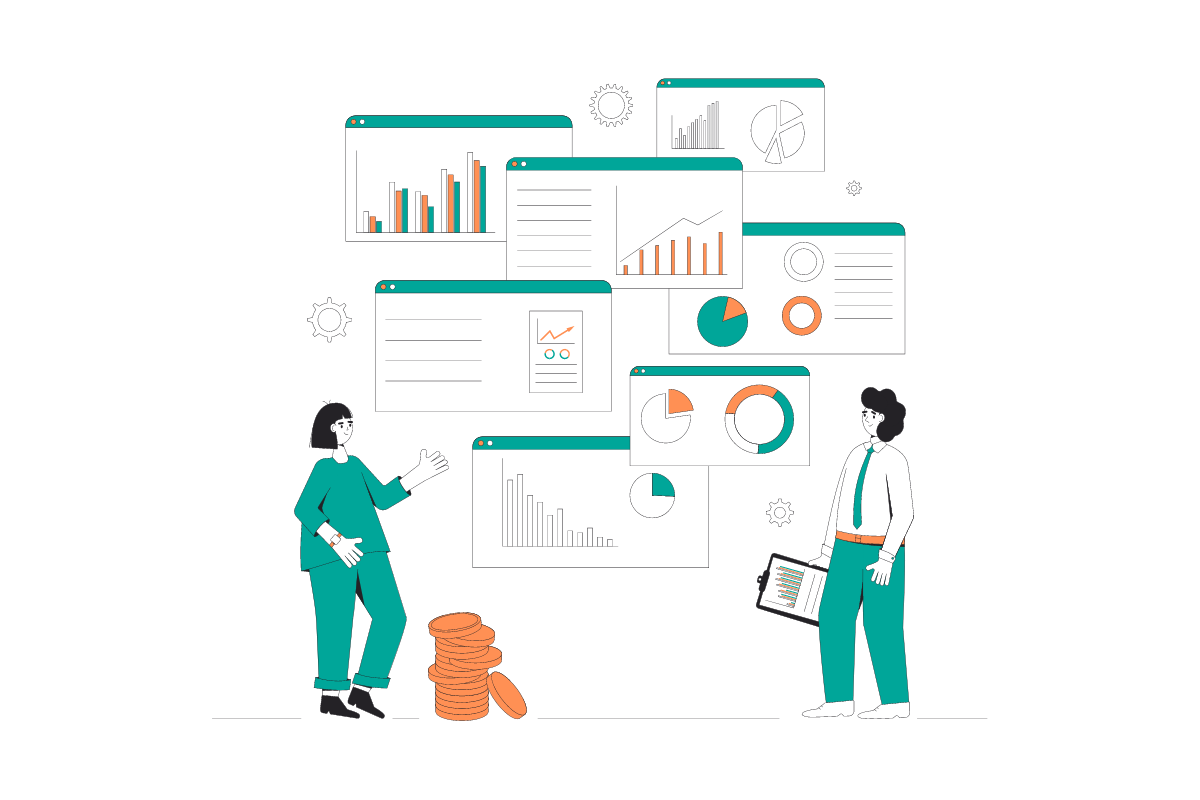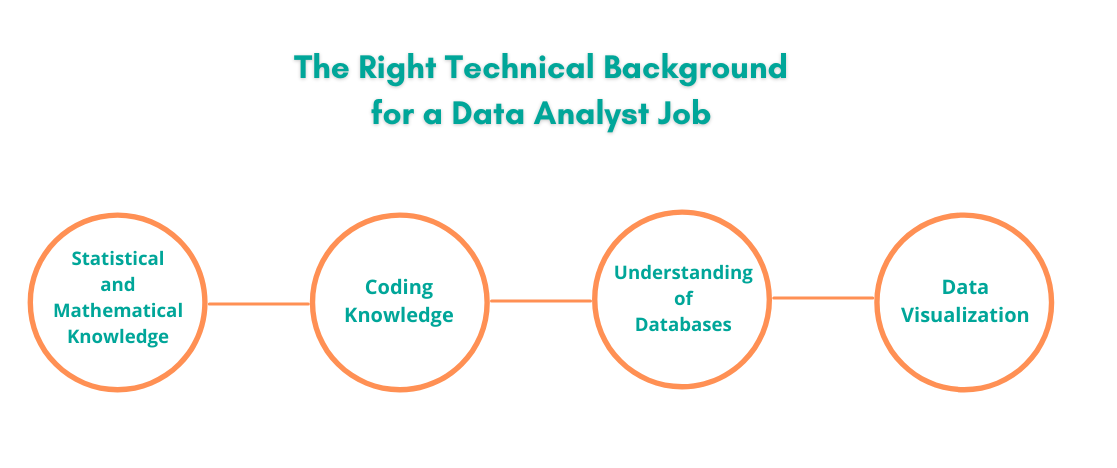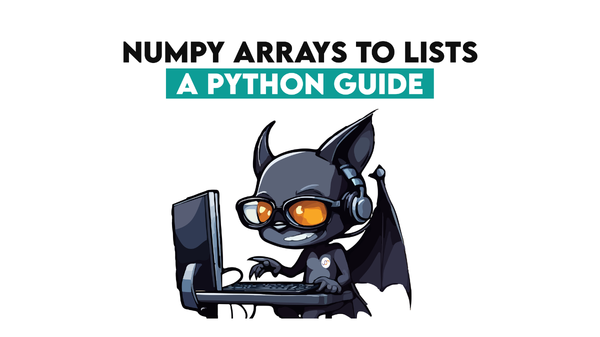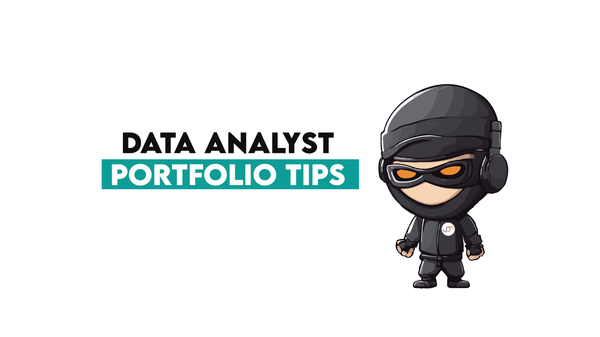Should You Get a Data Analyst Job?

Categories
Everything you need to know if getting a data analyst job is right for you.
Should you get a data analyst job? The real question is: do you know what a data analyst job actually is? You might feel like it’s a buzzword job description that’s only cropped up in the last five years and is easily confused with “data scientist” or “business analyst.”
This article will walk you through all the information around data analyst jobs. Once you’ve got the idea of what a data analyst is and who’s a good candidate for that kind of job, then you’ll be much better prepared to know whether you should or shouldn’t go for it.
A data analyst’s job description is best summarized as this: you collect and summarize data, you spot patterns, and you use it to answer business questions to other people at the company who might want to have that business intelligence. Basically, you ask questions and give the information to help others make decisions to improve the business.
To become a data analyst, all you need is the right skills and - more importantly - the right interests. It’s helpful to have a degree in the right field, such as statistics or mathematics, but increasingly, it’s not necessary.
With the rise of online schools and programming certificates, it’s totally possible to prove your skills without a diploma. You can even just take on a data analysis home project to both polish your skills and show your interest in the job. It’s more vital to demonstrate your interests in business, problem-solving, and communication than to have a degree.

Getting a data analyst job means you also get all the associated benefits. You’re probably aware of the fact that most companies have more data than they know what to do with, which means data analyst jobs are in high demand in 2021. Becoming a data analyst means you’ll get a nice salary (estimated median annual salary of $66k, according to Glassdoor) but more importantly, you get access to top managers and executives at whatever company you end up working at. Your work will have a real impact on the direction the company takes. Not only is that deeply satisfying, but it can help you build relationships to get promoted or change jobs later on.
This article will break down:
- What background will help you get a data analyst job
- What interests and passions you’ll need to become a data analyst
- The differences between a data analyst job and other data-based jobs, such as data scientists and business analysts
With this information, you’ll be better prepared to answer the question of whether you should get a data analyst job.
You should get a data analyst job if you have the right technical background.
As mentioned above, here “the right background” isn’t necessarily a computer science degree from MIT. All it means is that you have some kind of evidence that proves you have the technical chops to do the job you want to. More important, you should have a proven track record of demonstrating the following mix of technical skills:

- Some statistical and mathematical knowledge. Data analysts frequently run analyses on data (as the job title implies) so it’s important to have the math and statistical skills to design and execute the tests.
- Some coding knowledge. Data analysts use SQL, R, Python, and other coding languages to run analyses. You may also find yourself using Excel, Tableau, and other skills.
- Some understanding of databases. Numbers are not homeless - they’ll live in a database. In your data analyst job, you’ll need to know how to gather, store, manipulate, retrieve and store information from relational databases, using SQL or other coding languages.
- Data visualization. A picture says a thousand words, even in data analysis! To get a data analyst job, you’ll need to know how to best display your findings in a way that makes intuitive sense. Even something as basic as choosing between a pie chart or a bar chart is vital to develop as a data analyst. How you present your data analysis to your managers is everything.
If you don’t have these skills at this point, it’s not a deal-breaker - you can easily polish up your math and coding skills with online courses or tutorials. As long as you can demonstrate initiative and interest, your formal qualifications take a secondary role in getting you a data analyst job.
You can prove this background with a diploma, online certificates, or coding bootcamp. Many languages such as R and Python have tons of free resources online and in books to help you learn the basics. Even a previous non-analyst job where you took on the initiative to run a data analysis project can be helpful to show you have the right background for a data analyst job.
That’s all you need to get your foot in the door for an interview, at which point you should start focusing on what sort of questions might be asked at a data analyst job interview. For example, you might see these common data analyst interview questions asked if you’ve got a data analyst job interview at Facebook.
A data analyst job is the right fit if you have a passion for business.
Many people see the words “data'' and “analyst” and assume the job is all numeric. But a data analyst job is only right for you if you want to see beyond the numbers.
You can know how to program every language and understand every statistical test in the world, but unless you have a natural curiosity and passion for business, it won’t be enough to make you likely to enjoy your data analyst job. Data analyst jobs are best for people who have a passion for numbers, yes, but also for people who love the why behind the numbers.
Because you’ll be directly influencing business decision-makers in your data analyst job, you should have a thorough understanding of the key drivers of your business, or at least the interest that will lead you to find them. Data doesn’t exist in a vacuum, and the more intrigued you are to learn more about what makes your business tick, the better fit you’ll be for a data analyst job.
Furthermore, you should get a data analyst job only if you’re able to communicate clearly, effectively, and engagingly with your colleagues. Data analysts are not solitary workers - you’ll be collaborating, communicating, and working together with your colleagues and managers every step of the way, from collecting data, to analyzing it, to presenting it.
In summary, you’ll need these three interests if you want a data analyst job.
- Business acumen. It’s not enough to simply run the tests - you have to want to know why the business questions are being asked. For example, if you are anticipating some kind of supply delay, you should be armed with the business knowledge to understand the implications in order to properly collect data and answer the questions.
- Communication. While you will create many reports as a data analyst, your job requires you to go beyond that. You have to write your findings in such a way that they’ll make sense to others when you explain them. Your analyses will be read by people who may not have the same strong data background you do, so you should be prepared to write up and answer questions in a way that helps them understand what action should be taken next. Taking the complex and making it simple should be something you enjoy doing.
- Problem-solving. In a data analyst job, much of your work will be asking and answering the right kind of question. To be a good fit for this job, you have to love cutting through thorny problems.
Should you get a data analyst job - or a data scientist or business analyst job?
Part of knowing whether a data analyst job is right for you also means understanding the alternatives to data-based jobs. Titles like data scientist or business analyst may sound similar on the surface, but the day-to-day can differ enough to make clear whether you should aim for becoming a data analyst, or something else.
The main difference between a data scientist job and a data analyst job is what you do with the data. Data scientists often use skills like machine learning to use data to predict and capitalize on future trends, while data analysts use data to find historic trends across different time spans, create charts and reports to present that data, and help the business make the correct business decision.
Because data scientists often require more technical skills, you’d need more qualifications to get that job. For example, data analyst jobs usually only require a bachelor's degree (or one of the alternatives listed above) while data scientist jobs need a master’s in data science, or equivalent expertise and knowledge. As a result, data scientists get paid a six-figure salary for their more developed skillset, typically earning between $105k and $180k according to Robert Half Technology’s 2020 Salary Report.
Meanwhile, the difference between a business analyst job and a data analyst job is much more obvious from the name. You can check out the full set of differences between a data analyst job and a business analyst job here. The summary is that while data analysts do need an interest in business, business analysts go one step further, often coming to their job with a business-based degree. Data analysts will find themselves performing more data mining, cleaning, and big data analysis.
Data analysts tend to require a more complex and technical skillset than business analysts, giving them a higher starting salary and wider career options, while business analysts will get a lower starting salary (around $50k/year, according to Zippia) and risk pigeon-holing themselves into business-related roles.
Check out our article How Much Do Data Scientists Make to find out about salaries in Data Analytics.
If you have a diverse and fully-developed set of technical skills, and a master’s degree in data science (or equivalent) you may find a data science job is better than a data analyst job. Meanwhile, if your true passion is business with a side of numbers, rather than numbers with a side of business, you may find a business analyst role better suited to you. If you’re at the beginning of your career in math, statistics and coding, but you prefer the technical skills over business skills, a data analyst job is for you.
Should you get a data analyst job?
By the end of this article, you should know the answer to this question for yourself. To recap:
- Do you have the skills and/or certifications, or are you willing to get them? To be a good fit for a data analyst job, you need a proven track record in coding, databases, statistics, and data visualization.
- Do you have the right interests to be a data analyst? You need to demonstrate an interest in business, problem-solving, and communication.
- Finally, do you prefer getting a data analyst job over a job in data science or as a business analyst? Though there is a lot of overlap between these jobs, understanding the difference is critical to knowing whether you should get a data analyst job.
Getting a data analyst job can be the first step in an exciting career. You’ll have the opportunity to explore why and how a business is performing the way it does, help a business make the right choices, influence data-driven business decisions, and clearly communicate those results. You’ll also receive some great benefits along the way, such as a solid starting salary of around $70k per year due to the high demand for this role.
With an entry-level data analyst job, you can parlay that experience into a more technical role in data science, or you can continue on the track as a senior data analyst, handling more important decisions. If that sounds like an ideal set of options for you, then you should get a data analyst job.



